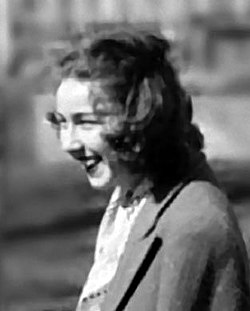Flannery O'Connor Quote
That's the trouble with you preachers, he said. You've all got too good to believe in anything, and he drove off with a look of disgust and righteousness.
Flannery O'Connor
That's the trouble with you preachers, he said. You've all got too good to believe in anything, and he drove off with a look of disgust and righteousness.
Related Quotes
Archbishop Mannix was possessed of the clearest intellect I have ever encountered. He prayed regularly for five hours and more each day, this in the midst of a life of intense activity. When he was we...
Bartholomew Augustine Santamaria
Tags:
australia, catholic, catholicism, christian, christianity, clergy, faith, history, mannix, religion
About Flannery O'Connor
Mary Flannery O'Connor (March 25, 1925 – August 3, 1964) was an American novelist, short story writer, and essayist. She wrote two novels and 31 short stories, as well as a number of reviews and commentaries.
O'Connor was a Southern writer who often wrote in a sardonic Southern Gothic style. She relied heavily on regional settings and grotesque characters, often in violent situations. In her writing, an unsentimental acceptance or rejection of the limitations, imperfections or differences of these characters (whether attributed to disability, race, crime, religion or sanity) typically underpins the drama.
O'Connor's writing often reflects her Catholic faith, and frequently examines questions of morality and ethics. Her posthumously compiled Complete Stories won the 1972 U.S. National Book Award for Fiction and has been the subject of enduring praise.
O'Connor was a Southern writer who often wrote in a sardonic Southern Gothic style. She relied heavily on regional settings and grotesque characters, often in violent situations. In her writing, an unsentimental acceptance or rejection of the limitations, imperfections or differences of these characters (whether attributed to disability, race, crime, religion or sanity) typically underpins the drama.
O'Connor's writing often reflects her Catholic faith, and frequently examines questions of morality and ethics. Her posthumously compiled Complete Stories won the 1972 U.S. National Book Award for Fiction and has been the subject of enduring praise.
